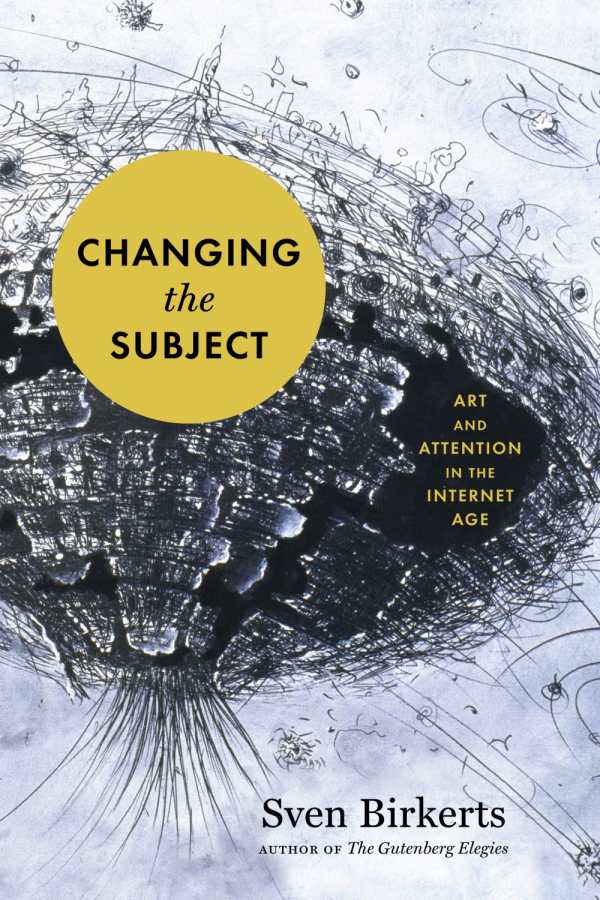Changing the Subject
Art and Attention in the Internet Age
These seventeen exceptionally well-written essays explain that an unprecedented explosion of data injures the restorative nature of certain important ways of thinking.
Sven Birkert’s Changing the Subject: Art and Attention in the Internet Age is a vivid and eloquent look at how technology affects our reading habits and, ultimately, injures the restorative nature of material culture: novels, letters, bookshelves, and record-store shopping.
The new information culture—e-mail, e-readers, online news aggregates, apps—results in a trend of merely harvesting facts, Birkerts writes. What’s lost, or “demoted,” is certain ways of thinking—namely, reflection, imaginative projection, and contemplation.
This is not just another book demonizing technology while advocating mindfulness. Instead, Birkerts, an American essayist and literary critic, uses literature and poetic observation to exalt the aspects of culture that are overshadowed by what he calls the “unprecedented explosion of data.” He writes beautifully on the inherent experience of reading a novel, writing a letter, or even navigating a map. He argues that there is inherent value in a book and its ideas, taking up physical space in your hands and surroundings. Likewise, he describes the benefits of getting lost and feeling unconnected as chances to pull attention into one’s inner world.
As he writes, “The lapsing of time is part of what invests any experience with substance and resonance … with significance. There has to be a difference between earned knowledge and that which is dropped into our laps—or laptops. It is through earning, the work of achieving, that we establish our psychological claim on our experience.”
The seventeen essays, most of which have been published in scholarly journals, are not only exceptionally well written but also authoritative. They touch on decades of debate on the role of culture and the self, with references to literary greats like Virginia Woolf and contemporary essayists writing for The Atlantic.
While waxing on the famous Jeopardy! episodes in which Ken Jennings competed with the computer Watson, Birkerts provides the most compelling reason to unplug: to “get on with other business, the more existential business, pursuing fantastic artistic explorations, and having those soulful dialogues that, when they happen, feel like the ultimate point of living.”
Reviewed by
Amanda McCorquodale
Disclosure: This article is not an endorsement, but a review. The publisher of this book provided free copies of the book to have their book reviewed by a professional reviewer. No fee was paid by the publisher for this review. Foreword Reviews only recommends books that we love. Foreword Magazine, Inc. is disclosing this in accordance with the Federal Trade Commission’s 16 CFR, Part 255.

